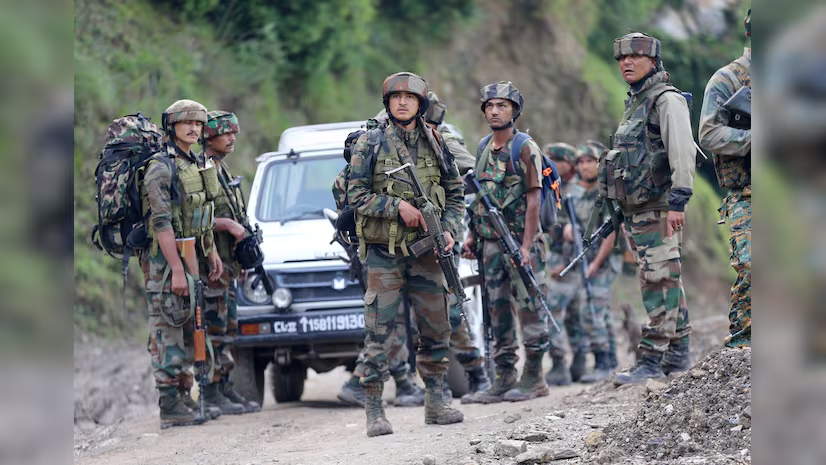
A Fragile Silence: The Human Cost of Ceasefire Violations on the India-Pakistan Border
A Fragile Silence: The Human Cost of Ceasefire Violations on the India-Pakistan Border The guns have, for now, fallen silent along the tense border that divides India and Pakistan. Following a period of intense clashes, triggered by the tragic attack on tourists in Pahalgam last month and the subsequent retaliatory strikes, a ceasefire agreement was reached. However, the sigh of relief is mixed with a deep-seated apprehension for the countless individuals who call this volatile region home. For them, the fragile peace is a welcome respite, but the scars of repeated ceasefire violations run deep, leaving an indelible mark on their lives.

Imagine a life where the distant boom of artillery or the sharp crackle of gunfire is not an anomaly, but a recurring soundtrack. This is the reality for families living in the border villages of Jammu and Kashmir, Punjab, and Rajasthan. Ceasefire violations shatter their sense of normalcy, turning their homes into potential targets and their daily routines into a gamble with fate.
The Immediate Impact: Fear and Displacement
When the shelling starts, the immediate reaction is sheer terror. People are forced to abandon their homes, seeking refuge in makeshift camps or with relatives in safer areas. This sudden displacement disrupts their lives entirely. Children are pulled out of school, farmers can’t tend to their fields, and daily wage earners lose their livelihoods. The uncertainty of when, or if, they can return home looms large, casting a shadow over their present and future.
Beyond the Physical: Psychological Scars
The impact extends far beyond the physical destruction. Constant exposure to violence and the threat of it takes a heavy toll on mental health. Anxiety, depression, and post-traumatic stress disorder (PTSD) are rampant in these communities. Children, in particular, are vulnerable, often exhibiting fear, bedwetting, and nightmares. The psychological wounds can be invisible but are often the most enduring.
Livelihoods Adrift: Economic Hardship
The border region’s economy, largely dependent on agriculture and small businesses, is severely affected by ceasefire violations. Fields lie untended, livestock are lost, and trade routes are disrupted. The constant fear and uncertainty deter investment and hinder any prospects of growth. For families already struggling to make ends meet, these disruptions can push them further into poverty. As a resident of a border village poignantly stated, “We live in constant fear. Just when we think things are getting better, the shelling starts again, and we are back to square one.”
A Cycle of Distrust and Despair
Each ceasefire violation erodes the already fragile trust between the two nations and deepens the sense of despair among the border residents. They often feel caught in the crossfire, their voices unheard amidst the geopolitical tensions. The hope for a lasting peace dwindles with every shell that lands near their homes.
The Recent Respite: A Glimmer of Hope?
The current ceasefire, brokered with international involvement, offers a much-needed pause in the violence. While the immediate fear may have subsided, the underlying issues that fuel these violations remain unresolved. The residents of the border areas yearn for more than just a temporary lull. They long for a sustained peace that will allow them to rebuild their lives, educate their children without fear, and cultivate their land without the threat of sudden displacement.
Looking Ahead: The Need for Sustainable Solutions
For the fragile silence to transform into lasting peace, a multi-pronged approach is crucial. This includes:
- Strengthening communication channels: Regular and effective dialogue between military and diplomatic channels of both nations is essential to de-escalate tensions and prevent misunderstandings.
- Implementing confidence-building measures: Steps to build trust between the border communities and the security forces on both sides can help create a more conducive environment for peace.
- Addressing the root causes of conflict: A sustained and meaningful dialogue on the core issues that divide the two nations is necessary for a long-term resolution.
- Focusing on the human cost: It is imperative for policymakers on both sides to recognize and prioritize the immense suffering endured by the border residents and work towards solutions that ensure their safety and well-being.
The current ceasefire offers a window of opportunity. It is crucial that this fragile silence is not shattered again, and that concrete steps are taken to build a future where the people living on the India-Pakistan border can finally live without fear and look towards a future of peace and prosperity. Their resilience in the face of repeated adversity is a testament to the human spirit, and their longing for peace deserves to be honored.
Leave a Reply